Mitra Strategis EXPERD - EXPERD Consultant
In Partnership with:
.webp)
Founded by Robert and Joyce Hogan, Hogan pioneered research on personality in business and was the first to quantify how personality factors impact workplace efficiency. Today, Hogan's research department continues to develop assessment tools based on sound psychological theory, and has conducted more than 450 studies which validating the relationship between personality and performance.
Hogan Assessment tools pinpoint key traits and aptitudes to streamline recruitment, manage talent, improve team performance and develop high potential leaders within the company.
Hogan Assessments has four key tools as follow:
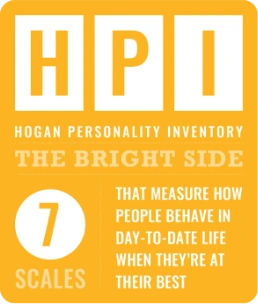
Hogan Personality Inventory
Provides information regarding the "bright side" of personality.
Describes characteristics that appear during social interaction and that facilitate or inhibit job success.
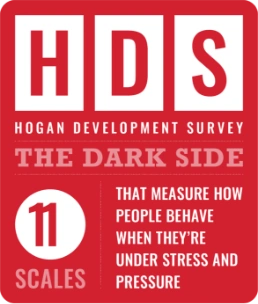
Hogan Development Survey
Identifies personality-based performance derailers of interpersonal behavior.
Describes the dark side of personality, including the pattern of behaviors that hinder work productivity.
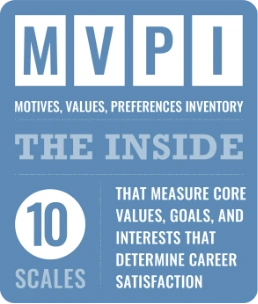
Motives, Values, and Preferences Inventory
Reveals a person's core values, goals and interests.
Indicates which type of position, job and environment will be most motivating and satisfying for an individual.
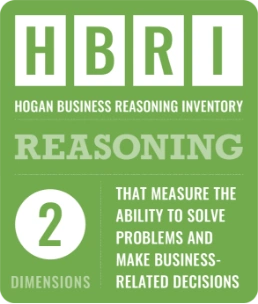
Hogan Business Reasoning Inventory
Identifies differences in problem-solving style and reasoning ability.
Describes the ability to evaluate data sets, make decisions, and solve business problems.
In Partnership with:
.webp)
Established in 2004, Saville Assessment is a global business that brings together human resource specialists in psychology, business consulting and information technology, all of whom share belief in customer service and passion for innovation in assessment.
Saville Assessment is underpinned by extensive research into the aspects of high performance and potential at work. Saville Assessments receives 27 out of a possible 30 stars from the BPS (British Psychological Society) independent review.
Saville Assessment consist of two different tools designed for different purposes:

Saville Swift
Aptitude Assessment
Measures a variety of abilities, depending on the individual role requirements.
Has an extensive range of ability tests, including combination packages to quickly evaluate different ability areas, as well as single tests to assess specific skills in more depth.
Includes measures of verbal, numerical, diagrammatic, abstract, error checking, spatial, and mechanical aptitudes, which predict the ability to work with words, numbers, systems, logic, details, designs, and equipment.

Saville Wave
Personality Assessment
Predicts competency potential supporting performance in the workplace.
Identifies potentials important to the role and the behaviors most predictive of performance and potential, culminating in fair and objective benchmarking.
Identifies potentials that is important to the role and the behaviors most predictive of performance and potential, culminating in fair and objective benchmarking.
Has a wide range of applications from hiring, building, and scaling talent aiming to improve quality of hire, maximize talent effectiveness, and transform leadership effectiveness.
In Partnership with:
.webp)
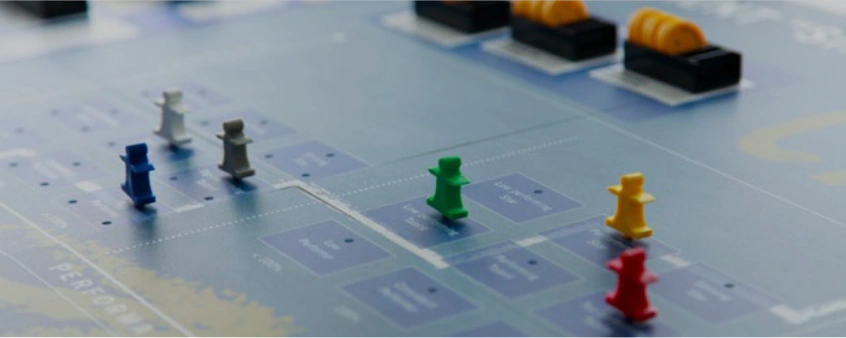
SIMDUSTRY® is active for you in over 40 countries across the globe!
EXPERD is SIMDUSTRY®’s local partner in Indonesia.
Find an explicit replica of your company reality!
The key to sustainable learning is replicating your unique business environment and challenges. SIMDUSTRY® integrates your corporate reality and philosophy into simulation solutions and learning architectures to help you achieve your goals.
Simulation-based trainings: Process & Elements/Components
Step 1.
Storyline
Step 2.
Simulation
Step 3.
Debriefs & Inputs
Step 4.
Application
In Partnership with:
.webp)
Silega is a global full-service training company specializing in developing and delivering business simulations. Utilizing the Experiential Learning System™, Silega’s simulations offer a higher retention rate than conventional training by immersing participants in real-world business scenarios. Available in over 40 countries, EXPERD proudly serves as Silega’s exclusive partner in Indonesia.
Silega’s business simulations are suitable for corporate training, team building, executive retreats, strategic planning, kick-offs, sales force training, leadership training, assessment, conferences, and change management initiatives.
The Experiential Learning System® by Silega™

Experience
Participate in a structured activity based on a mathematical model.
Make decisions
Participants can study information, make decisions, and act upon those decisions.
What is the challenge?
What are the rules?
What resources do we have available?
How is success measured?

Analysis
Study what are the results from the actions taken.
Examine consequences
After the experience, learners are ready to examine what was the final result of their decisions and why. They receive individual or group feedback on their performance.
What happened during the activity?
What were the results of our decisions?
What was the best possible scenario?

Content
Use analogies to link simulation with real world examples.
Introduce new information
Participants are led to focus their awareness on situations in their personal or work experience which are similar to those in the activity that they are about to engage in.
How is the activity linked to real world situations?
What information do we need in order to be more successful in similar real world situations?

Discovery
Plan how to use new knowledge in future situations.
See the big picture
Linking and applying what participants have learned to actual and future situations they are involved in, with the acquired knowledge. In this experience, they will be able to see how their actions can shape their reality in the real world.
In what future situations can we use what we have learned today?
How applying what we've learned will help us be more successful as a team and as a company?

Application
Use new knowledge and improve performance.
Transfer in the real world
Apply and transfer learning from a classroom to the real world. Participants are provided with practical tools to improve retention and applicability in future situations.
What specific actions can we take to improve performance?
Who is going to follow-up and by when?
Who else can be involved?
